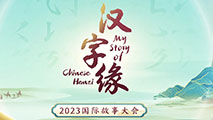More imported fruits hit Chinese market
More and more foreign fruits are entering the Chinese market, satisfying consumers' diverse tastes, thanks to the implementation of the Regional Comprehensive Economic Partnership (RCEP) agreement and the introduction of policies such as low tariffs, and rapid inspection and quarantine.
China tops the world in fruit production and consumption. It is the world’s largest kiwifruit market. Nearly 70 percent of the world's watermelons and half of apples are consumed in China.

This photo taken in September 2022 shows durians at a fruit stand in Guangxi, China. (Xinhua/Zhao Huan)
Ma Tao is a wholesaler at the Xinfadi market, the largest wholesale market of fruits, vegetables and meat in Beijing.
Ma said he was one of the first wholesalers of Musang King durians in Beijing, and has been engaged in the business for about 15 years. Ma now also runs a business in southeast China's Fujian Province, central China's Henan Province, and northeast China, and owns farms overseas.
"In the first few years, there weren't many varieties of imported fruits in China. At first, kiwifruits from New Zealand and avocados from Peru were particularly popular among domestic consumers," Ma said.
The Xinfadi market currently sells various kinds of imported fruits, from cherries, Australian citrus, pitaya, durians, Sunkist oranges, jackfruits, kiwifruits, bananas, to pineapples from Panama, red pomelos from Thailand, and pears from Belgium.
In 2022, China imported 7.33 million tonnes of fruits, a year-on-year increase of 4 percent, compared to less than 3.45 million tonnes in 2012, and the import value expanded by 8 percent year on year to $14.6 billion. The country's fruit imports doubled in the past decade.
At the Xinfadi market, there are several hundred fruit wholesalers like Ma. "I believe that the imported fruits business will improve thanks to more favorable policies," Ma said.
Among all imported fruits, durians are highly popular among Chinese consumers. Durians topped the list of fruits imported by China in 2022, reaching $4.03 billion, with a total import volume of 825,000 tonnes, nearly double that of 2014. Customs data shows that China's imports of fresh durians grew at a compounded annual rate of 17 percent between 2015 and 2022.
Chen Yanghui, director of fruit procurement and sales of Alibaba's fresh food retailer Hema, said Hema's sales of durians in April this year surged 75 percent from the previous month.
"Consumers have higher demands for the quality and variety of durians. We will import some varieties lesser-known to domestic consumers, including Musang King durians," Chen added.
Although the yield of Musang King durians in Thailand is low this year, Hema will ensure that domestic consumers can taste the fruit at the earliest time possible, Chen said.
Cold-chain technologies ensure the freshness of imported fruits. Not long ago, a chartered plane equipped with cold-chain facilities carrying 18 tonnes of fresh fruits from Thailand arrived at the Ningbo Lishe International Airport in Ningbo, east China's Zhejiang Province.
"There are at least two chartered flights a week during Thailand's harvest season of fruits. After the fruits pass customs clearance in Ningbo, they will be first shipped to our stores in east China and then to other cities through our cold-chain logistics network," said Chen.
Customs authorities across China have stepped up efforts to improve customs clearance and facilitate the imports of fruits to a greater extent.
In the first quarter of 2023, the ports of Shanghai handled 380,000 tonnes of dried and fresh fruits and nuts from countries along the Belt and Road, with a total value of 1.75 billion yuan ($242.2 million).
Shanghai's Waigaoqiao Port has handled nearly 300,000 tonnes of quality agricultural products from Belt and Road countries, including Thai coconuts, Vietnamese bananas, Cambodian bananas, and Malaysian durians.
To ensure fast customs clearance of fresh fruits from Belt and Road countries, Waigaoqiao customs in Shanghai has opened a green channel for them.
"Before the imported fruits arrived at the port, we had contacted the importer for information on the fruits and ensure that inspection could be carried out at the earliest time possible," said an official of Waigaoqiao customs.
Photos
Related Stories
Copyright © 2023 People's Daily Online. All Rights Reserved.









